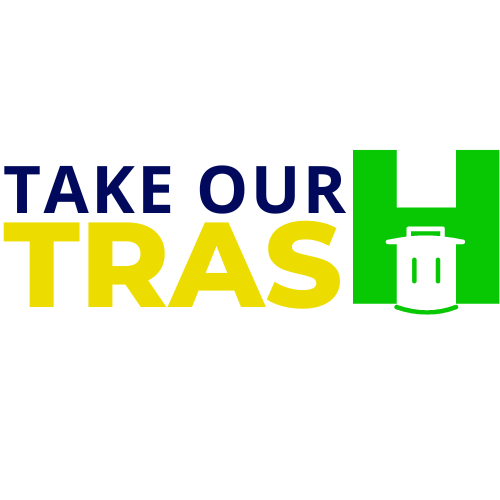Winter brings cozy nights by the fire, hot cocoa, and snowy landscapes, but it also comes with unique challenges—especially when it comes to managing trash. Freezing temperatures, snowstorms, and icy conditions can make taking out the garbage a daunting task. But with a little planning and some smart strategies, you can keep your waste management routine running smoothly, even during the coldest month of the year. Here’s how to manage trash like a pro this winter.
1. Prevent Trash Bins from Freezing Shut
One of the most common winter trash woes is finding your bins frozen shut. Here’s how to avoid it:
-
Line the bin with a plastic bag: Place a large garbage bag inside your bin before adding trash. This makes it easier to remove the bag, even if the bin itself is frozen.
-
Sprinkle non-clumping cat litter or salt: Adding a thin layer to the bottom of your bin can absorb moisture and prevent ice from forming.
-
Store bins in a sheltered area: If possible, keep your trash and recycling bins in a garage, shed, or under a covered porch to protect them from snow and ice.
2. Handle Frozen Trash Bags
When temperatures drop, trash bags can freeze to the bottom or sides of the bin, making them difficult to remove. Try these tips:
-
Double-bag your trash: Use two garbage bags to create an extra layer of protection against freezing.
-
Tap the bin gently: If your trash bag is stuck, tap the sides of the bin with a rubber mallet or the heel of your hand to loosen it.
-
Use a bin liner: Consider using a bin liner or a plastic bag holder to keep bags from sticking to the bin.
3. Manage Overflow During Snowstorms
Snowstorms can delay trash pickup, leading to overflowing bins. Here’s how to stay ahead of the game:
-
Reduce waste: Be mindful of how much trash you generate during storms. Recycle, compost, and avoid unnecessary packaging to minimize waste.
-
Use temporary storage: If your bins are full, store extra trash bags in a garage or basement until pickup resumes. Just make sure they’re sealed tightly to prevent odors.
-
Check your local schedule: Stay updated on trash collection delays or changes by signing up for alerts from your waste management company or checking their website.
4. Keep Recycling on Track
Recycling is just as important in winter as it is during warmer months. Here’s how to keep it hassle-free:
-
Rinse containers: Food residue can freeze and cause recyclables to stick together. Rinse out bottles, cans, and jars before tossing them in the bin.
-
Break down boxes: Flatten cardboard boxes to save space and prevent them from getting soggy in the snow.
-
Use a separate bin for paper: Wet paper products can’t be recycled, so keep them in a dry, covered bin until pickup day.
5. Deal with Icy Walkways
Snow and ice can make it difficult to carry trash bins to the curb. Stay safe with these tips:
-
Shovel a path: Clear a path to your bins and the curb to make trash disposal easier and safer.
-
Use a bin with wheels: Wheeled bins are easier to maneuver on icy surfaces. If your bin doesn’t have wheels, consider upgrading.
-
Ask for help: If you’re unable to safely take out the trash, ask a family member, neighbor, or friend for assistance.
6. Compost Smartly in Winter
Composting doesn’t have to stop just because it’s cold outside. Here’s how to keep your compost pile active:
-
Insulate your compost bin: Use straw, leaves, or a tarp to cover your compost pile and retain heat.
-
Add kitchen scraps: Continue adding fruit and vegetable scraps, coffee grounds, and eggshells to your compost. Avoid adding meat or dairy, as they can attract pests.
-
Turn the pile occasionally: If possible, turn your compost pile to aerate it and speed up decomposition.
7. Protect Your Bins from Wildlife
Winter can drive animals to scavenge for food in trash bins. Keep critters out with these tips:
-
Use animal-proof lids: Invest in bins with secure, locking lids to deter raccoons, squirrels, and other wildlife.
-
Store bins indoors: If you have space, keep your bins in a garage or shed until pickup day.
-
Avoid putting food waste in outdoor bins: If possible, store food scraps in a sealed container indoors until trash day.
8. Stay Prepared for Emergencies
Winter weather can be unpredictable, so it’s important to be prepared:
-
Stock up on trash bags: Keep extra garbage bags on hand in case of delays or overflow.
-
Have a backup plan: If trash pickup is delayed for an extended period, research local drop-off locations for trash and recycling.
-
Stay informed: Sign up for weather alerts and waste management updates to stay ahead of any disruptions.
Conclusion
Managing trash during the coldest month of the year doesn’t have to be a headache. With a little preparation and these practical tips, you can keep your waste management routine on track, even in freezing temperatures and snowy conditions. By taking steps to prevent frozen bins, reduce waste, and stay organized, you’ll save time, stay safe, and do your part to keep your community clean.

